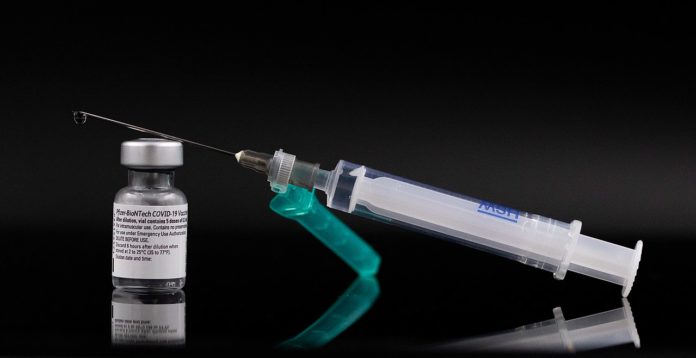Understanding what we know about the COVID-19 vaccine can help shed light on its safety and efficacy. On August 20, a webinar was hosted by Stellenbosch University’s Centre for Science and Technology Mass Communication (CENSCOM) and GroundUp. The webinar focused on how to understand if a medicine or vaccine is safe and effective.
Medical scientific research and development usually take a number of years before a vaccine can be approved. But due to decade-long preclinical research, as well as massive amounts of funding, COVID-19 vaccines could be developed in under a year.
Professor Shabir Madhi, dean of the Wits medical school and a leading medical scientist, explained how clinical trials work. Madhi also went into the details used to determine whether a medicine or vaccine is safe and effective. Dr Ushma Mehta, a pharmacovigilance consultant, and Dr Harris Steinman, a medical doctor and consumer activist, facilitated the discussion.
Related: COVID-19: Myth Busting Edition
Why do clinical trials?
Madhi explained that clinical trials are done to increase and improve medical knowledge. The trials also help to improve disease prevention and patient care. Clinical trials are also done for systematic investigations, structured specific protocols and for data collection or information on a topic.
He emphasised that medical scientists don’t do clinical trials because they love to use people as guinea pigs. Madhi said it is unfortunate when journalists start bringing about such narratives. “It’s particularly unhelpful in gaining public confidence around the need to do clinical trials,” he said.
Clinical trials contain an intervention (vaccine, medicine), unlike observational studies. Clinical trials also determine safety, immunogenicity, and efficacy of a drug/vaccine.They establish the best dosing regime and strengths. Observational studies are ones where researchers observe the effect of a risk factor, diagnostic test, treatment or other intervention without trying to change who is or isn’t exposed to it.
Madhi said: “In addition to it, we need to be clear that Africa constitutes 17 percent of the global population. Less than three percent of all clinical trials are done on an African continent and in fact the majority of the clinical trials that are done on an African continent are against diseases which most heavily affect Africa and not disease that affect high-income countries.”
Human challenge studies
Human challenge studies regarding COVID-19 vaccines is where people volunteer to be infected with the virus knowingly. Before that they are either given a vaccine or not given a vaccine and then the scientists see what happens in those individuals.
In South Africa there aren’t any human challenge studies facilities available but that is a category of clinical trials which are also being done.
Related: Separating the myths from the facts about the vaccine roll-out
A lot of vaccine hesitant people raise the concern that the American Food and Drug Administration (FDA) has only granted emergency approval to the vaccines, and not yet full approval.
On August 23, the FDA announced that it had approved the Pfizer-BioNTech (Pfizer) COVID-19 vaccine. This vaccine will be marketed as Comirnaty and is fully approved to prevent coronavirus disease in people 16 years of age and older.
Madhi said: “The reason for that is because they’ve got vaccines that are available to them that can be used under emergency use authorisation so that is done as an exception rather than the rule it’s done to address an immediate public crisis.”
Related: #COVID-19: 5 Ways To Protect Your Mental Health
Featured image via Wikimedia Commons









